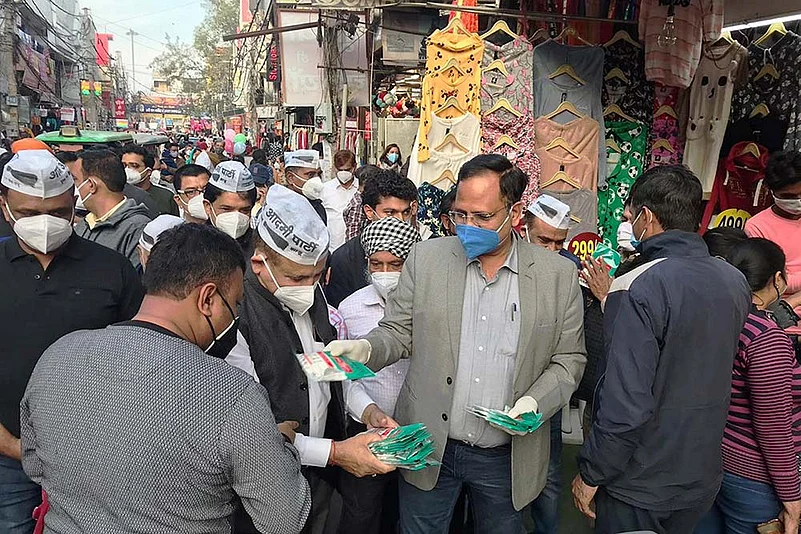Delhi Health Minister Satyendar Jain on Saturday said whether further Covid-related restrictions need to be imposed in the national capital will be reviewed as hospital admissions are less, despite a rapid rise in coronavirus cases.
According to data shared by the health department on Friday, Delhi reported 1,796 coronavirus cases with a positivity rate of 2.44 percent and zero death. "The virus is spreading fast. But the good part is that there are no serious cases. Be it any variant, Omicron or Delta, the way it can be prevented and treated remains the same. People should step out whenever necessary and wear a mask," Jain told reporters.
Advertisement
The Delhi Disaster Management Authority (DDMA) had on Wednesday decided that Covid-related restrictions imposed in Delhi under the ‘yellow alert’ would continue for the time being and authorities would monitor the situation for a while before deciding on fresh curbs. "We have put the restrictions in place. In other states, only night curfew has been imposed. But in Delhi, we have shut down schools, multiplexes, etc. In April and May when the second (Covid) wave had hit Delhi, a large chunk of people were getting admitted. But currently the hospitalisations are less. Further restrictions will be reviewed," Jain said.
On Tuesday, the DDMA had declared a ‘yellow alert’ under the Graded Response Action Plan (GRAP) in the city amid a spike in cases following the emergence of the Omicron variant. The alert entails restrictions like night curfew, closure of schools and colleges, opening of shops selling non-essential items on an odd-even basis and halved seating capacity in Metro trains and buses, among other things.
Advertisement
The GRAP is based on positivity rate (on two consecutive days), cumulative number of new cases (over a week) and average oxygenated-bed occupancy (for a week) for designated four levels of alerts. After the ‘yellow alert’, further restrictions are imposed at advanced stages of ‘amber’, ‘orange’ and ‘red’ with a higher number of new cases and hospitalisations. Earlier this week, Jain had said that Omicron is gradually spreading in the community and the new, fast-spreading variant of concern has been found in 54 per cent of the latest samples analysed in Delhi.
-With PTI Inputs




















